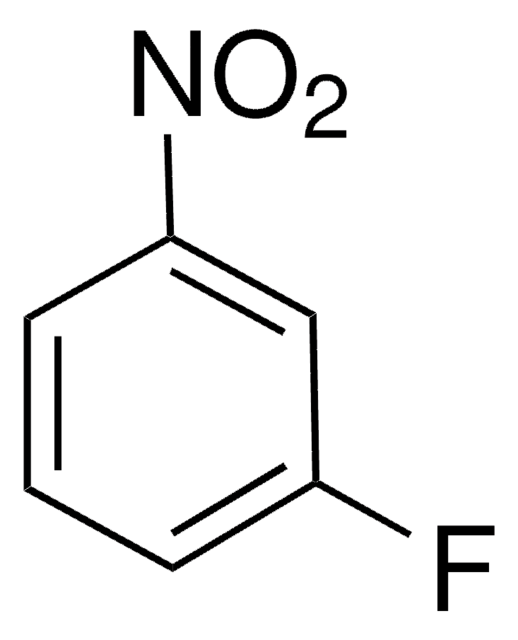230553
Sodium ethoxide solution
21 wt. % in ethanol
Synonym(s):
Sodium ethylate
Sign Into View Organizational & Contract Pricing
All Photos(4)
About This Item
Linear Formula:
CH3CH2ONa
CAS Number:
Molecular Weight:
68.05
Beilstein:
3593646
MDL number:
UNSPSC Code:
12352100
PubChem Substance ID:
NACRES:
NA.21
Recommended Products
form
liquid
Quality Level
concentration
21 wt. % in ethanol
refractive index
n20/D 1.385
density
0.868 g/mL at 25 °C
SMILES string
[Na+].CC[O-]
InChI
1S/C2H5O.Na/c1-2-3;/h2H2,1H3;/q-1;+1
InChI key
QDRKDTQENPPHOJ-UHFFFAOYSA-N
Looking for similar products? Visit Product Comparison Guide
Related Categories
General description
Sodium ethoxide is an alkoxide salt mainly used as a strong base in organic reactions such as deprotonation, dehydration and dehalogenation.
Signal Word
Danger
Hazard Statements
Precautionary Statements
Hazard Classifications
Aquatic Chronic 3 - Eye Dam. 1 - Flam. Liq. 2 - Self-heat. 1 - Skin Corr. 1A - STOT SE 2
Target Organs
Eyes,Central nervous system
Supplementary Hazards
Storage Class Code
4.2 - Pyrophoric and self-heating hazardous materials
WGK
WGK 1
Flash Point(F)
48.2 °F - closed cup
Flash Point(C)
9 °C - closed cup
Personal Protective Equipment
dust mask type N95 (US), Eyeshields, Gloves
Choose from one of the most recent versions:
Already Own This Product?
Find documentation for the products that you have recently purchased in the Document Library.
Customers Also Viewed
Sodium Ethoxide
Whitaker KS and Whitaker DT
e-EROS Encyclopedia of Reagents for Organic Synthesis. (2001)
S H Brorson
The journal of histochemistry and cytochemistry : official journal of the Histochemistry Society, 45(1), 143-146 (1997-01-01)
The purpose of this investigation was to develop a method that could be used to estimate how damaging sodium ethoxide is to different antigens with respect to immunolabeling when epoxy sections are deplasticized. If we obtain weak labeling for an
Ali Reza Harifi-Mood et al.
Journal of pharmacy & pharmaceutical sciences : a publication of the Canadian Society for Pharmaceutical Sciences, Societe canadienne des sciences pharmaceutiques, 7(1), 88-91 (2004-05-18)
Variable-Temperature Kinetics has been used to obtain the rate constants of the reaction at various temperatures during one kinetic run. Pseudo-first-order rate constants for the transesterification of procaine with aliphatic alcohols ethanol, n-propanol and tert-butanol were obtained by the fluorescence
Frank Derosa et al.
The Journal of organic chemistry, 73(3), 1139-1142 (2008-01-11)
Despite over a century of reports to the contrary, sodium methoxide has been found to react with nitric oxide (NO). The reaction, whose final organic product is sodium formate, is postulated to occur via an intermediate O-bound diazeniumdiolate [CH3O-N(O)=NO-] that
S H Brorson
Micron (Oxford, England : 1993), 32(2), 101-105 (2000-08-11)
The study's purpose was to obtain improved "deplasticizing" of epoxy sections for immunoelectron microscopy. Epoxy-embedded renal swine tissue with immune complex deposits was used. Ultrathin sections were mounted on uncoated grids or on carbon-stabilized formvar grids. The sections were exposed
Our team of scientists has experience in all areas of research including Life Science, Material Science, Chemical Synthesis, Chromatography, Analytical and many others.
Contact Technical Service













